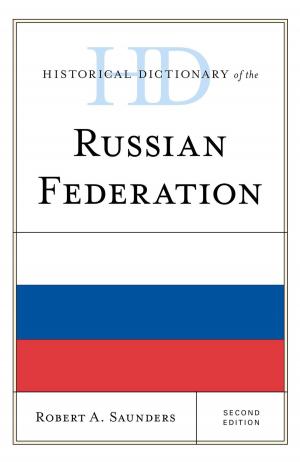Oil in the Soil
The Politics of Paying to Preserve the Amazon
Nonfiction, Social & Cultural Studies, Political Science, International, Foreign Legal Systems, Government, Public Policy| Author: | Pamela L. Martin | ISBN: | 9781442211308 |
| Publisher: | Rowman & Littlefield Publishers | Publication: | August 16, 2011 |
| Imprint: | Rowman & Littlefield Publishers | Language: | English |
| Author: | Pamela L. Martin |
| ISBN: | 9781442211308 |
| Publisher: | Rowman & Littlefield Publishers |
| Publication: | August 16, 2011 |
| Imprint: | Rowman & Littlefield Publishers |
| Language: | English |
Paradise may have been found in the Western Amazon, but it is on the brink of destruction. Oil in the Soil analyzes the campaign to save the Ishpingo-Tambococha-Tiputini (ITT) block of Yasuní National Park in Ecuador's Amazon and the global networks that have resulted in one of the world's most innovative plans to save the Amazon and other biodiverse places on our planet. Pamela L. Martin examines the path-breaking global environmental governance mechanisms that have resulted from the transnational networks of the Yasuní-ITT campaign and their implications for replication around the world. The analysis of these networks reveals new dynamics of mobilization from the South, which may impact the future of global environmental negotiations. Martin also examines the alternative norms behind the initiative in the words of governmental and non-governmental actors. Such normative changes demonstrate the global struggles of the resource-dependent poor and provide insights toward new pathways of sustainable development for the planet.
Paradise may have been found in the Western Amazon, but it is on the brink of destruction. Oil in the Soil analyzes the campaign to save the Ishpingo-Tambococha-Tiputini (ITT) block of Yasuní National Park in Ecuador's Amazon and the global networks that have resulted in one of the world's most innovative plans to save the Amazon and other biodiverse places on our planet. Pamela L. Martin examines the path-breaking global environmental governance mechanisms that have resulted from the transnational networks of the Yasuní-ITT campaign and their implications for replication around the world. The analysis of these networks reveals new dynamics of mobilization from the South, which may impact the future of global environmental negotiations. Martin also examines the alternative norms behind the initiative in the words of governmental and non-governmental actors. Such normative changes demonstrate the global struggles of the resource-dependent poor and provide insights toward new pathways of sustainable development for the planet.















